1. “Because I Said So” Was the End of Every Argument

There was no back-and-forth, no room for negotiation—when your parents gave an order, that was it. You might have tried asking “Why?” once or twice, but that only got you a stern look or, worse, the dreaded, “Because I said so.” That was the moment you knew the discussion was over, and unless you wanted to test your luck, you just did what you were told. Pleading your case like a lawyer never worked; if anything, it just made things worse shares Parents.
If you ever dared to roll your eyes or sigh in frustration, you were met with, “Do you want me to give you something to cry about?” And no, you definitely did not. Your parents ran the house like a well-oiled machine, and questioning their authority was simply not an option. You learned to accept their word as final, even if you didn’t like it adds Care.com.
2. A Threat Wasn’t an Empty One

Some kids got away with talking back because they knew their parents wouldn’t actually follow through with a punishment. That was not the case in your house. If your parents said you’d lose TV privileges for a week, you might as well have kissed the remote goodbye. They didn’t do second chances, and “just this once” wasn’t in their vocabulary shares Psychology Today.
You quickly learned that if they made a threat, they meant it. There was no “forgetting” or “letting it slide” when it came to discipline. If you acted up in the store, you were leaving with nothing—no candy, no toy, just regret. Your parents weren’t about making idle warnings, and you respected them (and maybe feared them a little) because of it says the Telegraph.
3. Chores Weren’t Negotiable

In some homes, kids got to skip chores if they had too much homework or didn’t feel like doing them. Not in yours. If you had time to breathe, you had time to sweep, mop, and take out the trash. The phrase “I’ll do it later” was never well received because later meant right now.
There was no such thing as an allowance for chores either—it was just part of being in the family. You didn’t get paid for washing dishes; you did it because they told you to. If you even hinted that your friends didn’t have to do as much, you got a lecture about how their roof, food, and clothes weren’t free. It didn’t take long to realize arguing was pointless.
4. You Knew Not to Touch Anything in a Store

Some kids roamed through stores, grabbing things off shelves, pushing buttons, and making a mess. You were not one of those kids. Before you even walked inside, you got the warning: “Don’t touch nothing, don’t ask for nothing.” If you dared to reach for a toy or a snack, you were met with a sharp look that made your hand snap back instantly.
You mastered the art of walking through a store with your hands firmly at your sides. There was no chance of a public tantrum either because you knew your parents would shut that down real quick. You didn’t need to test them to know you’d leave that store with a red face—not from crying, but from embarrassment. Shopping trips were all about efficiency, not fun.
5. Respect Wasn’t Optional
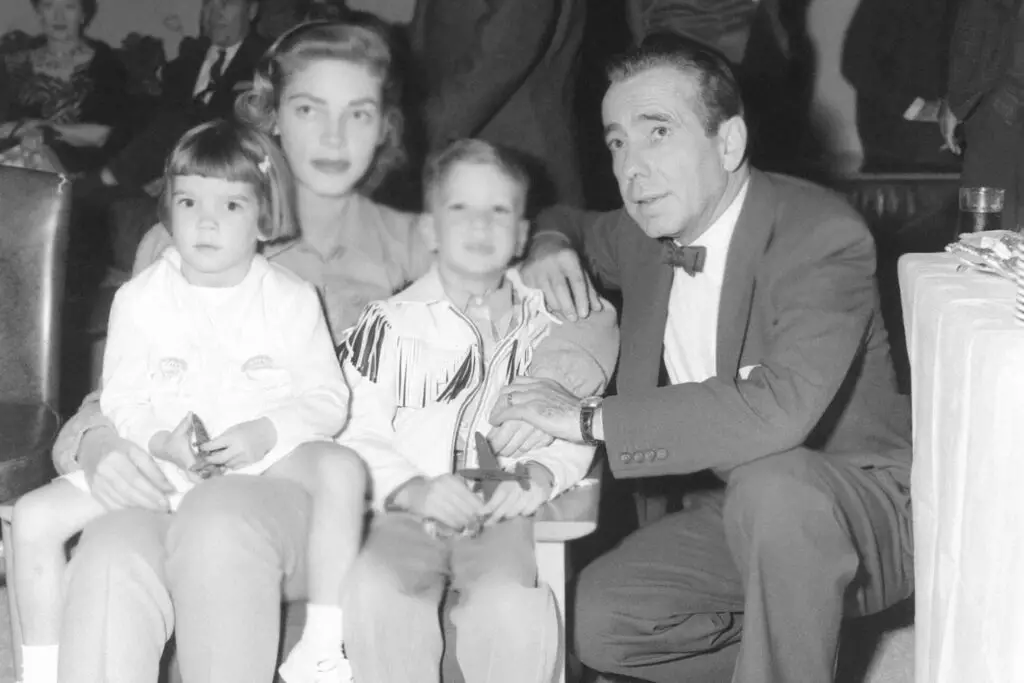
You never called adults by their first names, and you definitely didn’t talk back. If you even thought about rolling your eyes or responding with attitude, you got “the look.” It didn’t matter if the adult was right or wrong—you showed respect, or you faced the consequences. Saying “yes, ma’am” or “no, sir” wasn’t just polite, it was expected.
Disrespecting a teacher, a neighbor, or even a friend’s parent was a guaranteed way to ruin your day. You knew that if an adult called home about your behavior, the punishment was already waiting for you. Excuses didn’t work, and “I was just joking” never saved you. You learned early that being polite wasn’t an option—it was a requirement.
6. “What Did I Just Say?” Meant Trouble

When your parents asked, “What did I just say?” you knew you had messed up. It wasn’t an actual question—it was a warning that you were about to face the consequences of not listening. If you didn’t immediately repeat their words and correct your mistake, you were in for it. They weren’t asking because they forgot; they were testing you, and failing that test was never a good idea.
You learned that when they said something once, they meant it. Ignoring them, pretending you didn’t hear, or stalling only made things worse. There was no point in playing dumb because they saw right through it. The faster you listened, the easier your life was.
7. You Didn’t Slam Doors Unless You Wanted Trouble
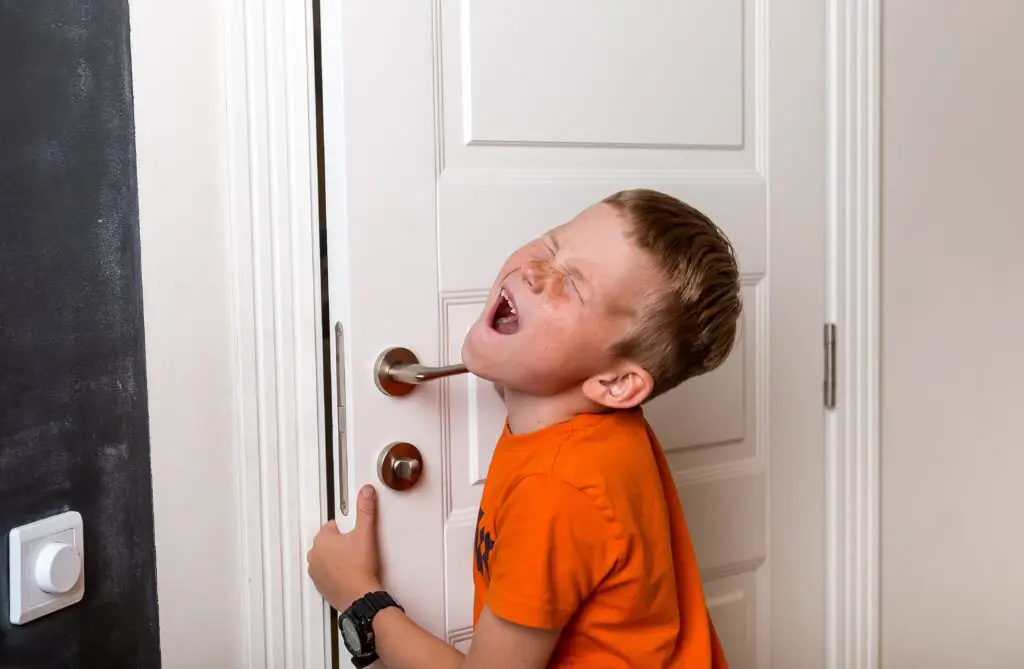
If you ever slammed a door in frustration, you only did it once. The moment that door rattled the walls, your parents appeared like they had been waiting for it. “Oh, so you pay bills now?” was a common response, followed by a very clear warning to never do it again.
Some kids got away with slamming doors, stomping up stairs, or throwing things when they were mad. You learned to express anger in silence. You could fume all you wanted, but your room door better close as softly as a whisper. Testing that rule wasn’t worth it.
8. Bedtime Wasn’t Up for Discussion
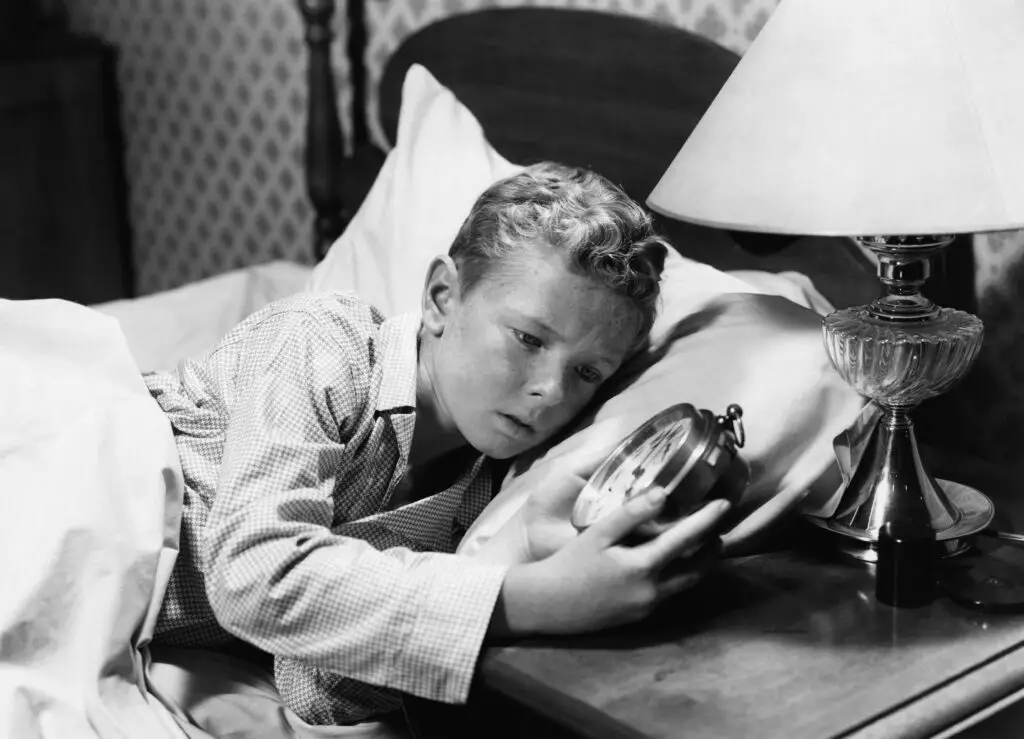
If your bedtime was 9 PM, you were in bed by 9 PM—end of story. It didn’t matter if your favorite show was on or your friends got to stay up later. “But I’m not tired” never worked, and begging for extra time just earned you a reminder that you didn’t set the rules.
Trying to sneak out of bed was a lost cause too. Your parents had an almost supernatural ability to know if you were still awake. If you so much as made a peep, you’d hear footsteps coming down the hall. Staying up late just wasn’t worth the risk.
9. “I’m Not One of Your Little Friends” Was a Serious Reminder
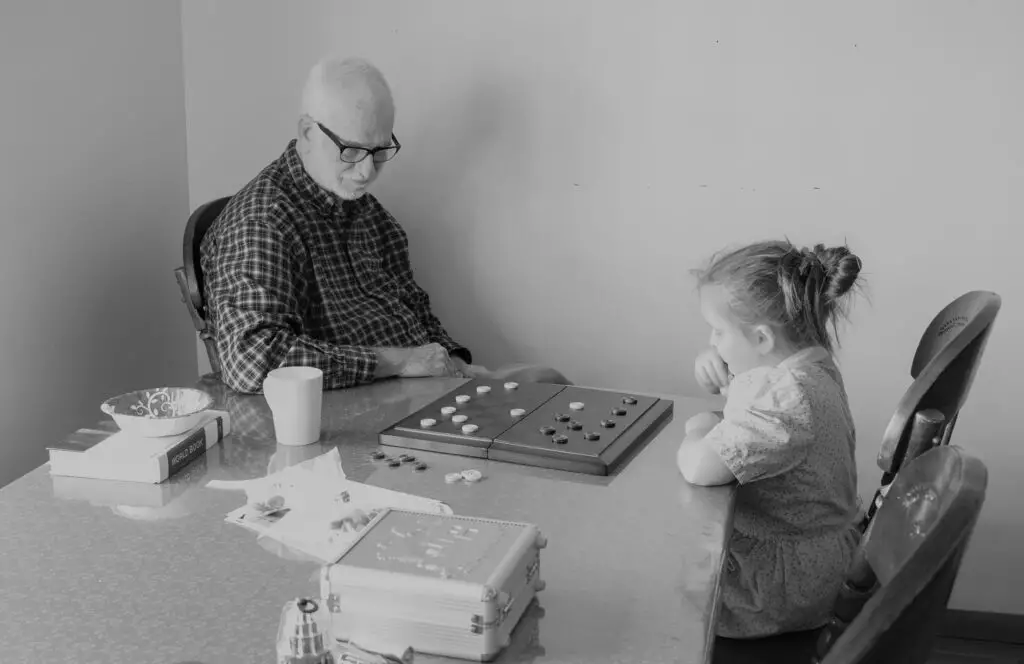
If you ever got too comfortable talking back, you were immediately reminded: “I’m not one of your little friends.” That meant whatever tone you had better change fast. Your parents weren’t there to be your buddies—they were there to raise you.
That phrase usually came before a punishment, so you knew to backpedal quickly. You might have been able to joke around with friends, but at home, there were boundaries. Crossing them was never a good idea. That lesson stuck with you for life.
10. The Whole Neighborhood Could Discipline You

If an adult saw you acting up, they didn’t hesitate to correct you. Worse, they’d report back to your parents, and that was never good news. You couldn’t get away with anything because eyes were everywhere.
Your parents trusted the whole community to keep you in check. If you embarrassed yourself outside, you embarrassed them too. That meant a double punishment when you got home. There was no such thing as getting away with bad behavior.
11. You Ate What Was on Your Plate—No Special Requests

Dinner wasn’t a restaurant, and your parents weren’t taking orders. If they made meatloaf and you hated meatloaf, too bad—you were eating meatloaf. Complaining about the food was a risky move that could easily lead to going to bed hungry. “This isn’t a buffet” was a common response to any objections.
You learned to eat whatever was served, even if you didn’t like it. The idea of making a separate meal just because you weren’t in the mood for something was unheard of. If you hesitated too long at the table, you got a firm reminder that food wasn’t to be wasted. Eventually, you stopped being picky real quick.
12. Privacy Wasn’t a Right—It Was Earned

Some kids had “knock before entering” rules, but not in your house. If your parents paid the bills, your room wasn’t really your room—it was just a space they let you use. Doors could be opened at any time, and “I need privacy” was not an excuse for anything. If they needed to check your drawers, closet, or under the bed, they did.
Locked doors were especially off-limits. If you ever dared to lock your door, there was a high chance it would be taken off the hinges. You had nothing to hide, so why would you need to lock it? At least, that’s what they told you.
13. Your Parents Had Eyes in the Back of Their Heads

It didn’t matter what you were doing—somehow, your parents knew. You could be sneaking an extra cookie, whispering something under your breath, or rolling your eyes behind their back, and suddenly, they’d call you out. It was like they had a sixth sense. “I better not catch you doing that again” was always followed by “I already know what you’re up to.”
There was no escaping it. Even if they weren’t in the room, they had ways of finding out. A sibling would snitch, a neighbor would casually mention it, or they’d just know. You spent your whole childhood wondering how they always managed to be one step ahead.
14. Leaving the House Meant Answering 100 Questions

You never just “went out.” Before you even stepped a foot outside, you had to answer a full interrogation: Where are you going? Who’s going to be there? When will you be back? “Just out” wasn’t an acceptable answer unless you wanted to stay home.
If you missed your curfew by even five minutes, you knew you were in trouble. There was no texting “five more minutes” because their response would be “You better be on your way.” Coming home late once meant the next time, you weren’t going anywhere at all. You learned real fast that your parents’ trust wasn’t something to play with.
15. You Were Expected to Act Right in Public—Or Else
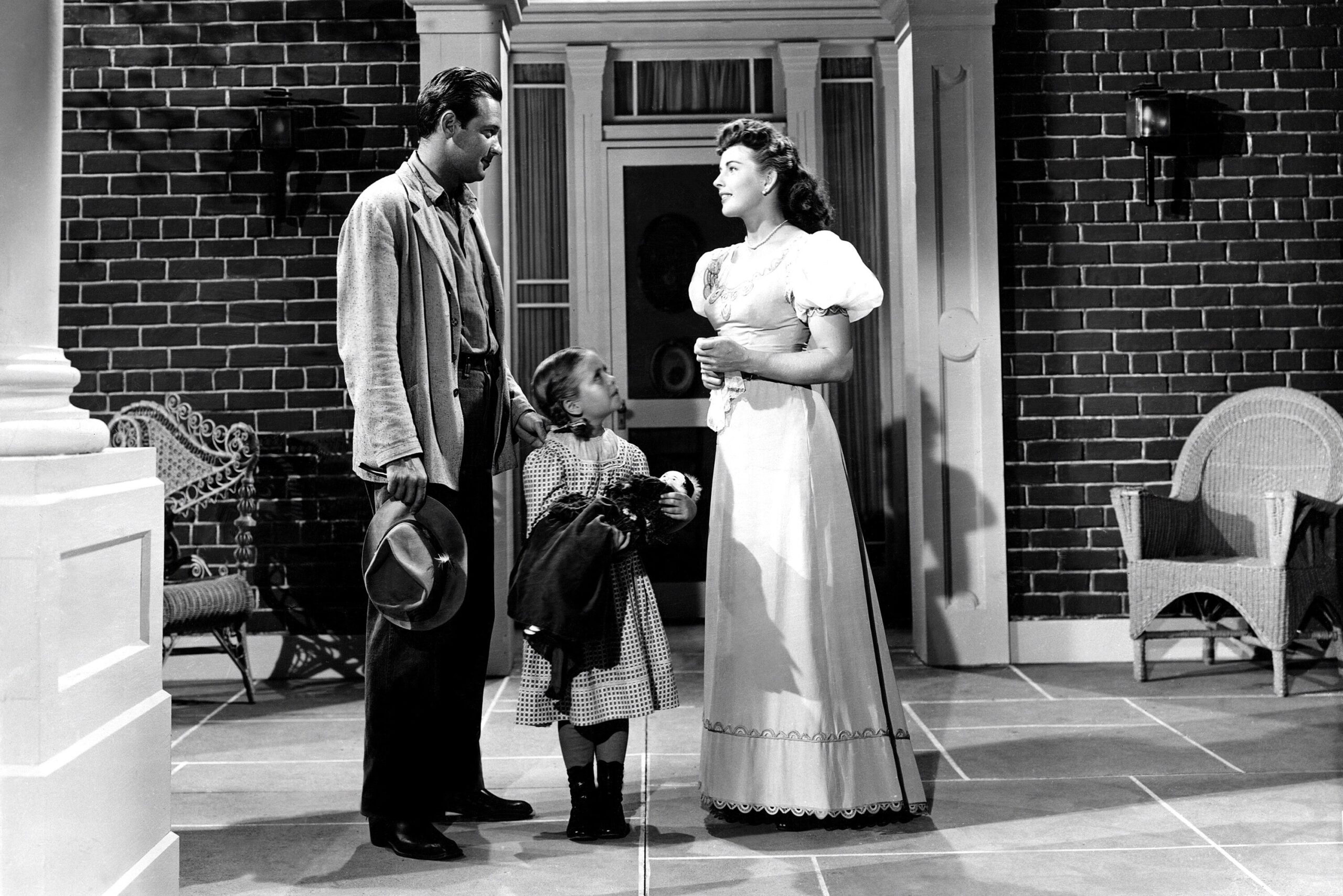
Your parents didn’t play when it came to how you behaved in public. Running around, yelling, or acting a fool was out of the question. If you even thought about showing out, all it took was one look to set you straight. If that didn’t work, a firm grip on your arm would remind you that consequences were coming.
Embarrassing them in public was a guaranteed way to ruin your day. They had a special ability to keep their cool in front of others, but the moment you got home, it was a different story. You learned to behave, not just because you were scared of getting in trouble, but because you respected their rules. And that lesson stuck with you for life.
